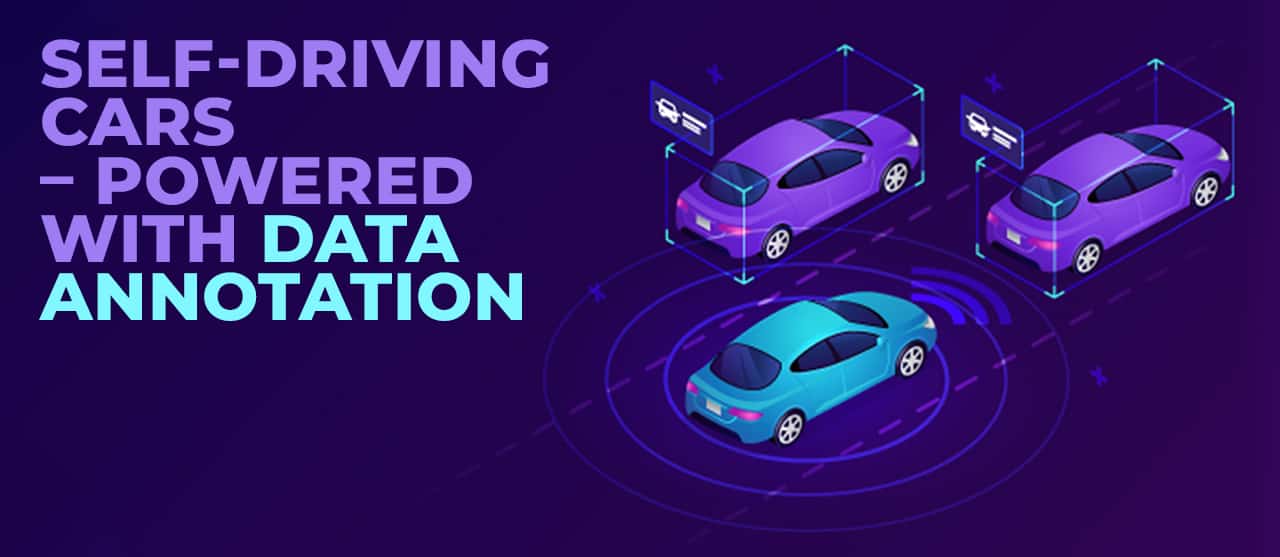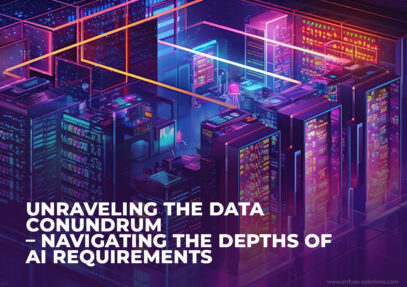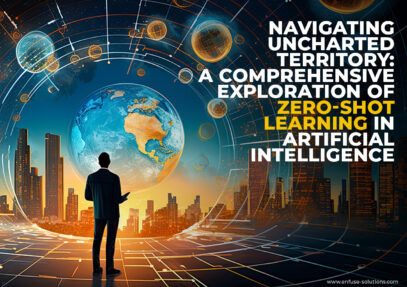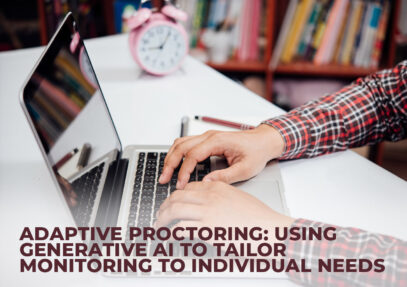
Be it for autonomous drones or self-driving cars, data-based technology tools are playing a crucial role. Technology devices like GPS systems, cameras, and sensors have made this possible in 2022. According to Visual Capitalist, around 464 exabytes of data will be generated daily by 2026. At the current rate of data growth, data labeling or annotation is inevitably set to play a crucial role.
The global market for data annotation tools is set to reach $13.7 billion by 2030, with a major impact on the automobile and retail industries. With the help of data annotations, AI and machine learning technologies are benefiting the autonomous vehicle industry with features like automatic vehicle tracking and guidance. What is the need for data annotation in self-driving cars? We will explore this aspect in this article.
The Need For Data Annotation In Self-Driving Cars
The growing use of field sensors and high-resolution cameras means that autonomous vehicles are generating large volumes of data. For any self-driving car to move from Point A to B, it needs to continuously monitor its surroundings accurately.
This is where the need for data annotation arises. The collected data from numerous datasets cannot be processed accurately until they are properly labeled. Here are some of the key areas where data annotation is required for self-driving cars:
- Localization, or the means to navigate the vehicle based on its current position on the road and the direction that it is taking.
- Detection, or the means to improve road safety by accurately detecting safety hazards including other vehicles, potholes, or any obstructing object including pedestrians.
- Voice Assistance, or the mode of improving the driving experience using voice-enabled technology to control internal settings of the vehicle including air-conditioning, lighting, music controls, and more.
For a safe driving experience, accurate data annotation is a “must” as even a minor labeling error can lead to disastrous consequences. An accurate machine-learning algorithm is possible only through accurate annotations. For instance, self-driving vehicle company Tesla included over 500 data annotators in its pilot project and plans to increase its team size to 1,000 for the tedious annotation work.
Among the many types of data labeling, video annotations are being used to improve machine learning-based object-tracking algorithms used in self-driving vehicles. Having said that, data annotation for self-driving cars has its share of challenges, which we shall discuss now.
Challenges Of Data Annotation In Self-Driving Vehicles
When training data for autonomous cars, there are multiple challenges for effective annotation including the data collection process, detecting objects accurately, and 3-dimensional object analysis. Here are 5 major challenges for accurate data annotation:
1. A Large Team Of Annotators
For an accurate analysis, machine learning algorithms require a large volume of data collected from diverse datasets. Manual annotation of images from various sources requires a large team of data annotators, who are skilled to work with a large number of datasets.
An in-house team of data annotators needs to spend hours cleaning up and structuring unstructured data to be used in AI and ML models. With a dedicated in-house team of annotators, companies face multiple challenges like extensive employee training, proper work distribution, shortage of skilled annotators, and removing “human” bias from labeling work.
2. Selecting The Right Annotation Tool
Along with a skilled workforce, companies looking for data annotation services need to choose the right tools and techniques for the best results. Further, AI-enabled automated or manual labeling has its share of pros and cons, which must be evaluated when choosing the appropriate annotation for the company.
Additionally, data annotation tools use different techniques like bounding box annotation or point cloud annotation when labeling any data. Besides choosing the right technique, in-house annotation work demands major investments into these tools and customizing them for business requirements.
3. Consistent Data Quality
AI and machine learning models in self-driving cars require high-quality data tagging, where even a slight error can have serious consequences and cost companies in a big way. Along with delivering high-quality data, producing them consistently is a challenge for annotation experts. Companies need to maintain a consistent flow of high-quality data for training their ML models accurately.
When it is a question of labeling subjective data, annotators can interpret their datasets differently based on their data expertise, cultural values, and background. Furthermore, in-house annotation teams find it challenging to resolve quality-related issues without a complete feedback process that checks on human errors.
4. Data Privacy
To improve road safety, self-driving cars make use of sophisticated sensors and cameras to collect and store data about other vehicles and owners. According to Automobility LA, one autonomous vehicle will generate around 4TB of data each day. This has led to major concerns being expressed about data security and privacy.
This includes concerns about collecting and storing personal information like a user’s location, facial information, driving speeds, and on-road behavior. As more organizations continue to collect and store more confidential information, data labeling companies need to comply with both data security and privacy concerns.
5. Cost Escalation
Data acquisition is among the major cost factors that can determine the budget of any AI or machine learning project. Nearly 26% of companies that start an AI project fail midway due to cost escalation. For the autonomous vehicle industry, there is a constant requirement for high quantities of datasets, thus adding to their overall budgets.
Plus, a lack of transparency in most data-related projects means that most organizations end up paying more for data labeling efforts. Besides, companies also need to pay for an in-house annotation team and invest in expensive data technology tools.
Conclusion
For autonomous car companies, building your own in-house data annotation team can be a time-consuming and costly affair, which can ultimately fail your AI or ML project in the short run. To meet the growing challenges of data annotation, companies need to partner with a professional data labeling company that is skilled in delivering successful projects.
EnFuse Solutions has enabled its global customers with end-to-end services in data labeling and tagging. Here is why you should consider partnering with a data labeling company like EnFuse. Want to explore how we can be of assistance in your next project? Contact us today.

















Comment